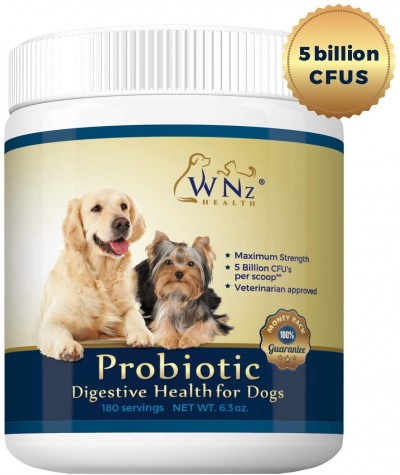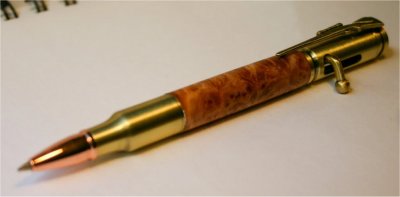What’s the Best Dog Probiotic on Amazon?
- We’ve almost forever known that our gut contains germs.
- We learned a little more recently that many of the germs in our gut a “good” and necessary.
- In the recent past, science learned that we can implant / transplant beneficial germs to the gut.
Very recently, we realized that if we put “good germs” in the gut while we kill other germs with antibiotics, that the gut remains “pretty healthy” in spite of the antibiotics. Yeasts are less likely to overgrow and the bad germs left in the gut don’t get “the upper hand”.
So until lately, science has been putting milk-based germs (lots of lactobacillus) species into the guts to pretty good effect. They’re easy to get, to grow and to give. But they’re by no means “native” germs. They’re still “outsiders” and just holding a place.

VERY very recently, science has started growing colonic germs (poop germs) commercially in the lab and those are actual REPLACEMENTS that benefit the gut. Since the germs are grown in petri dishes, it’s not like anyone’s being exposed to poop anymore than someone giving lactobacillus are being exposed to milk.
But dogs do better with native poop germs. So do people. (FMT) (These people should have a probiotic supplement!)
And so the probiotics that are the best have germs (in addition to the standard-bearer Lacto’s) germs that are ‘native’ or nearly-so, to the animal’s own gastrointestinal tract. Germs like:
L. Acidophilus, E. Faecium, L. Rhamnosus, L. Plantarum, B. Bifidum, B. Longum, B. Breve, L. Casei, B. Coagulans, B. Lactis, S. Thermophilus, L. Fermentum
When you see a germ with “faecium” in the name, go ahead and get grossed out, because that’s a poop germ, but it’s also a HERO among germs because it literally belongs in there.
So while some companies are using the trusty old Lacto-team, which is GOOD, more progressive companies are adding actual “proper poop” species. Species that literally belong there.

What else is in a good probiotic?
FOS. Fructo-Oligo-Saccharides. This is “inulin” (not insulin) – – a soluble fiber from a lot of sources. Chicory was at one time the most common source but Jerusalem Artichoke is coming on. Inulin is literally “all that’s good” about soluble fiber. When you eat a pumpkin, sweet potato or black bean, you get some “inulin” soluble fiber. When you eat chicory root, or jerusalem artichoke, ALL you’re getting is “inulin” so you can see that FOS Powdered Chicory Root is a the best, purest source for inulin. Better than pumpkin or anything else.
But pumpkin is tasty. Dogs like it. So, we go with that.
What are Probiotic s made with, besides germs?
A great “vehicle” or “powder” to mix your probiotics in is FOS, or inulin powder and that’s often from Chicory or similar as listed above.
Other probiotics are mixed in oat powder. I say “Meh, okay. Overpriced oat meal with some germs in it.”
And some are based on Whey. Which is good. I would be HAPPIER seeing FOS/inulin as the base vehicle / powder, but whey has distinct palatability advantages.
So when you go over to Amazon.com you want to see:
- Ingredients only from America. (Not Italy, not China.)
- Based on Whey or FOS/inulin. (Not wheat, oats or any other grain)
- That contains E. faecium and S. thermophilus at least.
Which is the best one? (Best germs but Whey based, more tasty)
Which is the SECOND best one? (Most of the same germs but FOS based)
Runner Up With a Twist: I’m including this because this company has done a little more research and decided: “You know what? Screw the milk germs, all a dog’s actually gonna benefit from are native species anyway, so give ’em LOTS of E faecium!” and so they did. Then they chocked it full of Vitamin C and Taurine, zinc and other goodies. They’re one of VERY few manufacturers who “put it in writing” that their germs are LIVE. Sadly, there’s no inulin, or soluble fiber, or whey in it, but it’s a good one:




